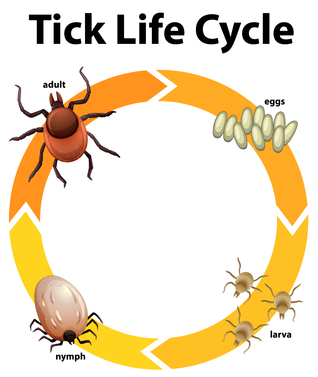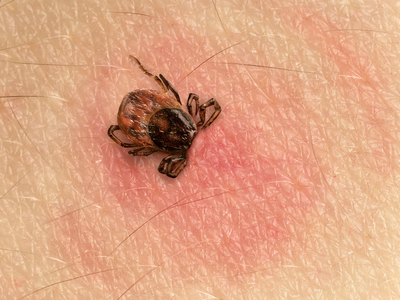Is The Information You Have About Ticks Factual or Myth?
We are living in times when every single bit of information you have needs verification. For sure, accessing information has become much easier than it was a few decades ago. On the other hand, there is too much false information circulating on the internet. So, before you act on the info you come across, make sure you find out the facts concerning it. That includes the information you have about ticks. Since they are disease-carrying vectors, you need to be extra careful about the info you have on these tiny bugs.
The Basics

To properly gather the right info on ticks, you need to know the fundamental facts about them. If you have been referring to them as insects, you already need the following post to guide you.
Ticks are not insects
Ticks are not insects at all. They are an arachnid. They are a cousin of the spider and scorpion with 4 pairs of legs and no antennae.
Ticks live a long time
For a bug, ticks can live quite a while. Most insects have a lifespan that last just days or week. Ticks are a tough animal that have a life cycle that takes over 2 years for the tick to fully develop in some species.
Ticks don’t die off in Winter
Many people think ticks will die off in the winter with a hard freeze like some insects. They don’t. They find places to stay safe and go into a dormancy in dead leaves and other wooded debris. When it gets above 35 degrees, they can start getting active again.
Ticks are real life vampires
Some insects need a blood meal for a protein fix in order to lay eggs, like the mosquito, Ticks FEED off of blood. That is their source of nourishment and do not feed on anything else. Read more at Mosquito Squad…
Pretty weird, huh? That they can survive for so long is an alarming fact. That means, as long as they are around your home, you’re at risk of a tick-bite! You better be on the look-out for these bugs.
How They Move

So, you probably already know that ticks cannot fly. But most people tend to imagine that they can jump onto them. Is this really true?
Myth: Ticks can jump
How do ticks find their way onto people? Many people described having ticks jumping on them from trees, but ticks can’t jump. Instead, they patiently sit on low vegetation or crawl around the ground, sensing a host’s carbon dioxide and heat.
Ticks search for their next meal when temperatures are above 4°C. During the winter, people think that ticks are inactive or dead because of the cold. However, if temperatures rise above freezing for several days, ticks can emerge from their dormancy, leaving us and our pets at risk. Read more at Healthing…
Yes, they are attracted by the very air you breathe out as well as your sweat. That means there’s very little you can do to repel them as far as your breathing goes. At least, now you know they can’t jump onto you like a grasshopper would.
How To Remove Them

Before we get to removing them, it’s also very important to note that a tick bite can easily go unnoticed. This is because ticks are clever. They ensure you won’t feel their bite by secreting a substance that numbs you first. That’s why you should keep checking for tick bites. So, what is the best way to remove them? There are myths around this issue…
If you find a tick, the best way to remove it is to burn it with a match.
Wrong. According to Dr. Rich, this thinking is totally wrong and misguided. “Imagine trying to burn something the size of a poppy seed or smaller that’s attached closely to your skin,” he says. “This is potentially dangerous and painful. Agitating the tick can put you at a higher risk of exposure.”
Other popular myths about removing ticks include smothering it with oil, butter, nail polish, nail polish remover, dish detergent, Vaseline, alcohol, or aftershave. All pose the same risk as burning.
The best — and the safest — way to remove a tick is to use fine-tipped tweezers. Grasp the tick as close to the skin as possible and pull straight up in a firm but slow and steady motion until it pops out of the skin. Read more at Gear Junkie…
Another myth is that after removing a tick, you should flush it down the toilet. Well, it is understandable that you’d want to destroy the buy completely. However, it is better if you take it to the authorities for testing. This will help you to know if it was carrying any pathogens. It’ll also determine if the tick is new to the area and if there is cause for concern.
In the meantime, you need your guards up as far as keeping your home tick-free goes. Backyard Bug Patrol is the ultimate go-to company for all your tick concerns. Our barrier spray program will keep all ticks away from your yard. Call us today for inquiries.
